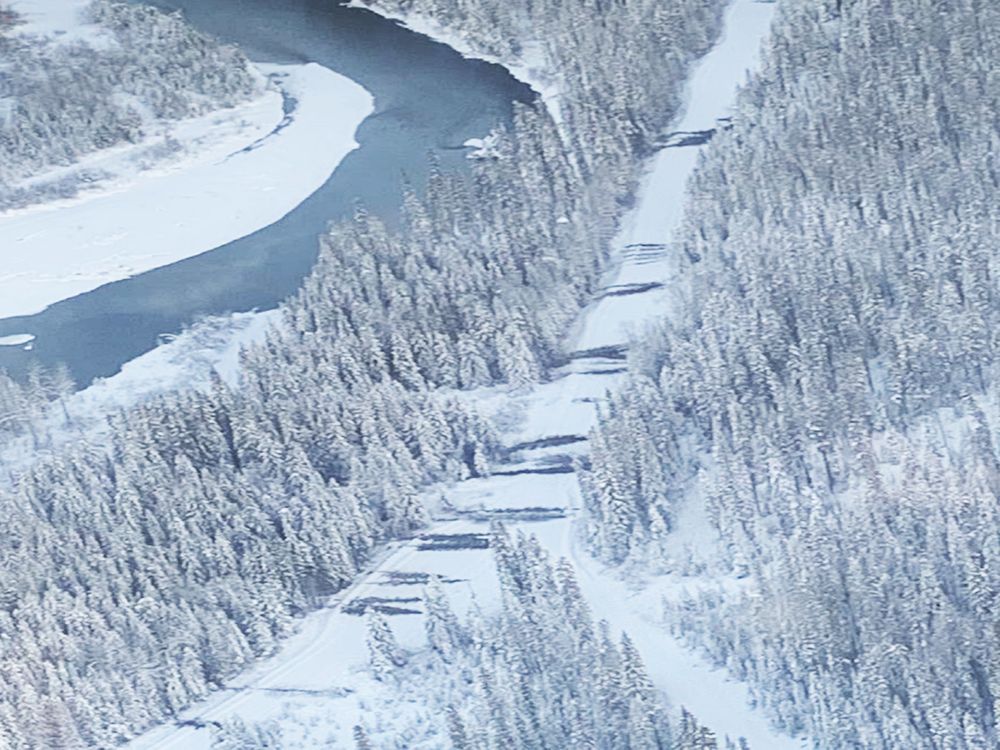Vaughn Palmer: Trans Mountain decision could support B.C. decisions on LNG pipeline

Credit to Author: Hugh Dawson| Date: Wed, 05 Feb 2020 01:49:36 +0000
VICTORIA — The Federal Court of Appeal decision in favour of the Trans Mountain pipeline expansion has also highlighted guidelines for dealings with First Nations on other major projects.
Four First Nation applicants from B.C. had argued that the federal cabinet’s second-round approval for TMX failed to meet standards of consultation and accommodation of their interests.
The court ruled Tuesday that, on the contrary, Ottawa had met those standards: It consulted Indigenous peoples in depth and accommodated their interests where possible in a process that was “anything but a rubber stamping exercise.”
In the course of a 90-page ruling, the court also set out what consultation and accommodation does and does not entail — for governments and First Nations.
The court says the commitment means Indigenous people will have “the opportunity to make submissions for consideration, formal participation in the decision-making process, provision of written reasons to show that Indigenous concerns were considered and to reveal the impact they had on the decision, and dispute resolution procedures like mediation or administrative regimes with impartial decision-makers.”
Then the court noted some caveats: “Imposing too strict a standard of perfection, reasonableness or meaningfulness in assessing whether the duty to consult has been adequately met would de facto create a veto right.”
Nor is consultation an opening for dragging things out forever: “The applicants’ submissions are essentially that the project cannot be approved until all of their concerns are resolved to their satisfaction. If we accepted those submissions, as a practical matter there would be no end to consultation, the project would never be approved, and the applicants would have a de facto veto right over it.”
As for accommodation, “like consultation, it does not guarantee outcomes. It is an ongoing give-and-take process. Canada must act in good faith, but at the same time accommodation cannot be dictated by Indigenous groups.”
On the goal of reconciliation: “Reconciliation does not dictate any particular substantive outcome. Were it otherwise, Indigenous peoples would effectively have a veto over projects such as this one. The law is clear that no such veto exists.”
On the UN Declaration on the Rights of Indigenous Peoples, with its promise of “free, prior and informed consent,” to First Nations on projects within their traditional territories: “Canada expressed its desire to seek to secure free, prior, and informed consent at the start of the re-initiated consultation process. That being said, Canada was under no obligation to obtain consent prior to approving the project. That would, again, amount to giving Indigenous groups a veto.”
On the complaint that the federal government had favoured the evidence of its own experts over those produced by First Nations: “It is not the role of this court to act as an academy of science to decide whose view is correct. Disagreement does not indicate a failure of consultation; failure to adopt specific scientific and technical views does not render consultation unreasonable.”
The court served notice on First Nations that they, too, have obligations to the process.
“While the duty to consult imposes obligations on Canada, it also gives rise to corresponding obligations on the part of Indigenous groups,” said the court, citing an earlier decision. “Indigenous groups must not frustrate the Crown’s reasonable good faith attempts, nor should they take unreasonable positions to thwart government from making decisions or acting in cases where, despite meaningful consultation, agreement is not reached.”
At one point, the court faulted the First Nations for their delaying tactics: “Much time was taken up by unnecessary delay, posturing and insisting on matters of form rather than substance.”
As for point blank calls from First Nations for the TMX to be killed or abandoned, the court had this to say: “The case law is clear that although Indigenous peoples can assert their uncompromising opposition to a project, they cannot tactically use the consultation process as a means to try to veto it.”
The court said it again and again: First Nations do not have a veto or a de facto veto. Consultation and accommodation is a right to a process, not a particular outcome. And First Nations are obliged to participate in good faith as well. They can’t just dig in and demand the project be cancelled.
Consider how those guidelines might be applied in the current stand off over the Coastal GasLink natural gas pipeline in northern B.C.
The project has been approved by the elected leadership of 20 of the 20 First Nations along the route. But it is being blocked by a group of hereditary chiefs who simply want it killed. They are claiming what amounts to a veto and have defied a court injunction.
Circumstances alter cases, as the lawyers say. Still, it would be ironic if the New Democrats, who opposed the TMX expansion, were to use some of the arguments that saved that project to combat the efforts to obstruct the construction of Coastal GasLink.
The Federal Court of Appeal decision is subject to appeal to the Supreme Court of Canada. But the appeal court went to some lengths to ground its findings in guidelines laid down by the Supreme Court itself in earlier cases involving the rights of First Nations to be consulted and accommodation.
If the Federal Court of Appeal has read the earlier decisions correctly, then the high court might not agree to hear an appeal and simply let this week’s decision stand.